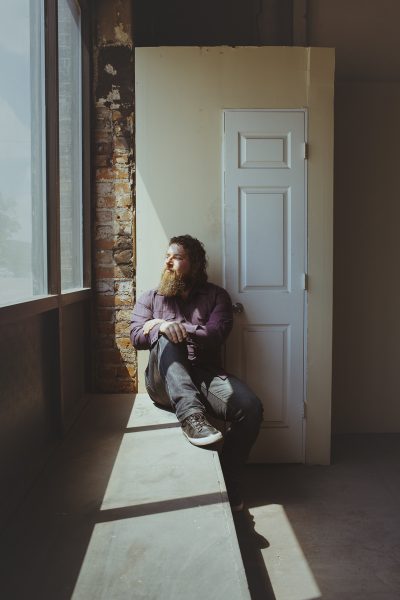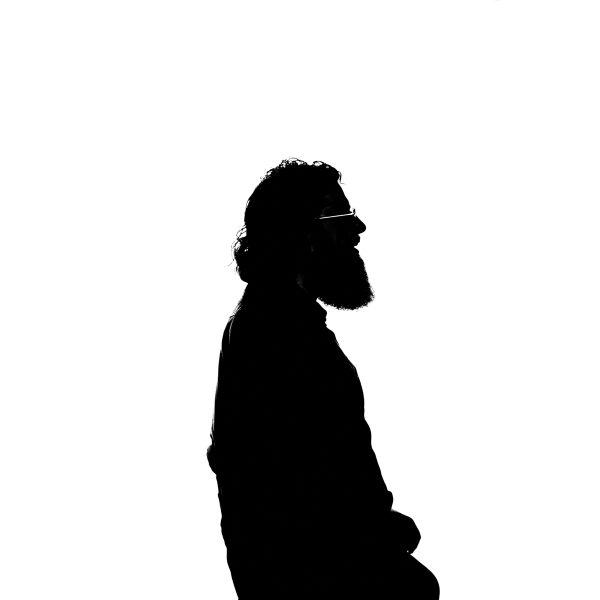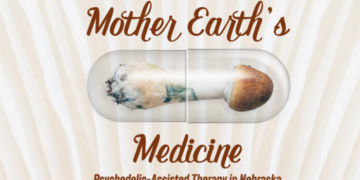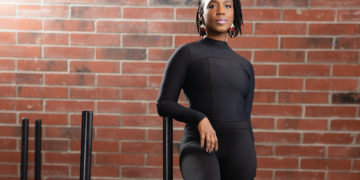Asked when he received his first guitar, singer-songwriter Andrew Bailie almost reflexively rattles off “May 1, 1999.”
During this time, he was still pursuing his love of hockey, which he started playing at age 5. While in his youth hockey league, the 15-year-old Bailie stayed at a hotel in Albert Lea, Minnesota. At the hotel, one of the players brought out a guitar and began passing it around to other kids. After hearing one of the fathers play “Iron Man,” Bailie was converted.
“The next year, I wasn’t playing hockey anymore,” he says.
In March, Bailie released his debut album, Wasteland. It is a summation of two decades of playing in local bands, studying under a nationally-acclaimed drummer, and taking any gig that was available in New York City. His album was recorded in two 10-hour stretches at Grand Street Recording in Brooklyn, where it was also mixed. At times marrying jazz and blues, Wasteland also has moments of ’90s-era alternative rock (Bailie’s falsetto brings comparisons to the Afghan Whigs’ Greg Dulli).
In high school, Bailie was so committed to pursuing a career in music that he missed the first week of his senior year to attend a week-long guitar workshop at Berklee College of Music in Boston. He considered enrolling full-time at the college until he ran into Seth Ondracek and Matt Arbeiter. The three started gigging together, forming Jazzwholes in 2003. Higher education could wait.
“It was supposed to be a year off before college. It turned into about a decade,” Bailie laughs.
The Jazzwholes got a house gig at Goofy Foot Lodge, which later became the now-shuttered House of Loom. Their Sunday performances usually lasted four hours. During one night off, Bailie and his bandmates went to see percussionist Dana Murray perform at Mick’s (now The Sydney) in Benson.
“It was not like any drumming we had ever seen,” Bailie says.
Bailie knew that Murray taught fellow drummers, but he was heartened to hear that he also taught other musicians. For homework, Murray had Bailie watch YouTube videos to learn guitar parts. In a phone interview, Murray remembers having Bailie listen to Miles Davis’ Nefertiti, then quizzed him on the players.
Murray, not interested in teaching guitar to hobbyists, encouraged Bailie to move to New York City to hone his craft. Murray himself lived in NYC for a time, but returned to Omaha in 2005 to raise his family. Murray believes bringing students out of their comfort zones is one of the best ways to make a career as a musician.
r r
r
“I always encourage them to leave the nest of Omaha and go to bigger cities,” Murray says.
Arbeiter, who also studied under Murray, took that advice and moved to New York in 2010. In 2012, Bailie followed suit, moving to the Bushwick neighborhood of Brooklyn. For two years, he lived in a five-bedroom house, “college-dorm style.”
“In two years, I think we had about 15 people that lived there,” Bailie says.
Arbeiter and fellow musician Nicholas Semrad began feeding Bailie gigs as soon as he arrived in New York. Speaking from his apartment in Brooklyn, Arbeiter said Bailie has a natural ability on the guitar.
“The first thing that comes to mind about Andrew is he’s a very raw, pure talent,” Arbeiter says.
Bailie’s first performance was at The Bitter End, where Joni Mitchell and James Taylor once played. Semrad put Bailie in touch with a few gospel performers, and he began playing a regular church gig in East Brooklyn.
Eventually, Bailie got the attention of Cory Henry, who asked him to join his band, Cory Henry & the Funk Apostles. This gave him the opportunity to tour internationally. The constant exposure to artists made Bailie a better listener to his own playing.
“I was the worst musician in the room for three years, and that is the absolute best thing that could have ever happened to me,” Bailie says.
In addition to playing with Cory Henry & the Funk Apostles, Bailie has played with Talib Kweli. He was also invited to Lauryn Hill’s house for a writing session where Hill sang, and he played backup with other musicians. The session lasted almost four hours.
After living in New York for five years, Bailie moved to Maine, partly to work on his debut album. He says Wasteland is about the cycle of addiction. Instead of targeting specific addictions like alcohol or heroin, he says the album was about whatever eats away at both individuals and society.
“Are we addicted to the old ways that are going to kill us, or are we going to turn around and figure out some new stuff, and break the chain?” Bailie says.
One song on Wasteland, “Mr. Sunshine,” is about his cousin, Lowell Ensel, an aspiring filmmaker who died at age 20 from testicular cancer that had metastasized to his lungs. Bailie received the news of Ensel’s death 10 minutes before he was supposed to play at The Shrine in Harlem.
“He was just a bright spot in everyone’s life,” Bailie says.
Bailie’s stay in Maine ended in 2018 when Murray, his former instructor and mentor, invited him to come to Omaha and visit his new studio. Bailie helped on some of the records Murray was producing, and he quickly rekindled his love for Omaha and its arts scene.
“So much more is happening now then when I left seven years ago,” Bailie says. “Some incredible bands have showed up since I left, and some really great talent—not just in music, but in art as well.”
Though Bailie now considers Omaha home, he returned to New York in May to play Rockwood Music Hall in support of Wasteland with his former bandmate Arbeiter. His old musician friend Semrad contributed a track to the album (“Sem_rad”).
To Murray, the album is a representation of Bailie’s growth both as a musician and a person.
“I think it's great. I think it's a great body of work. I think it documents a moment in time where he was on a creative level,” Murray says.
r
For more information visit andrewbailiemusic.com.
rThis article was printed in the July/August 2019 edition of Omaha Magazine. To receive the magazine, click here to subscribe.












